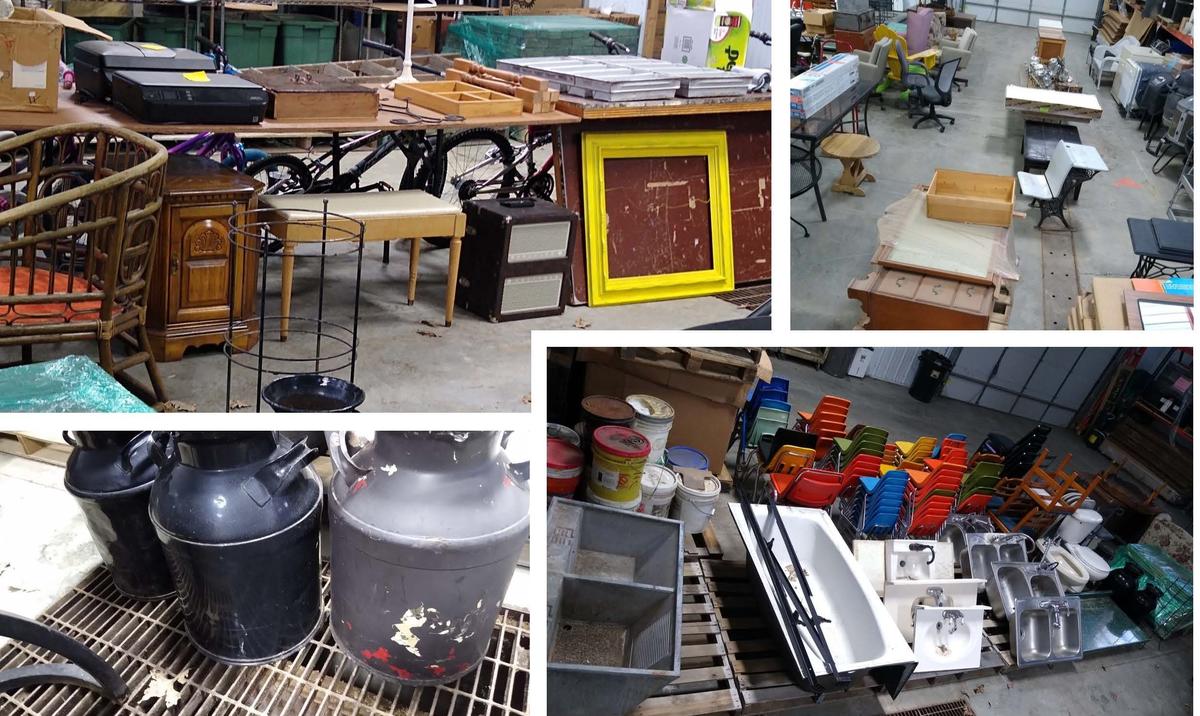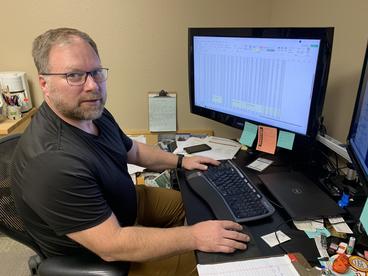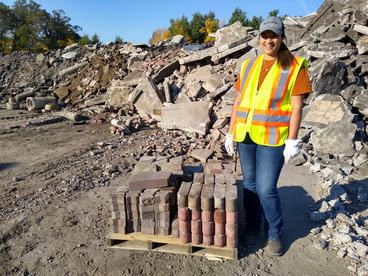Finding new uses for waste materials is a theme that runs through many NRRI projects. Now, Materials Scientist Victor Krause is setting a path forward with a Resource Reuse Program to give the efforts a strategic focus.
“First of all, let’s not call it ‘waste’ anymore, because it’s a resource,” he said. “There’s a huge economic opportunity out there to convert materials into new goods.”
The program will feature a unique database to capture byproduct resources across the state and region. Mining materials, biomass, road construction materials, pulp mill waste… the list of resources that could be used in other processes or products is seemingly endless.
“It harkens back to the days of the Great Depression when everything got repurposed in some way,” said Krause. “But we’ll put that on steroids by expanding currently available databases and a tracking system to connect resources to end users across the region. It’s not your grandma’s rubber band collection anymore.”
NRRI will continue its partnership with Ecotone LLC, a Minneapolis-based consultancy that analyzes data for strategic planning. Krause worked with them to develop models for calculating carbon sequestration impact of diverting materials from landfills.
“Their numbers help us quantify our program impact, which makes our funding requests more successful,” Krause added.
A Better Futures Start
Krause’s efforts in this arena, since 2014, have largely focused on assisting Better Futures Minnesota – a non-profit, social enterprise in Minneapolis – meet their goals of diverting deconstruction and, most recently, household waste from the landfill. The partnership has been successful. Better Futures and NRRI continue to expand the waste diversion efforts beyond the Twin Cities.
“Partnering with NRRI has been instrumental in our evolution as a social enterprise,” said Jason Allen, Better Futures project manager. “We anticipate this partnership fostering new opportunities for broadened workforce development of the men that we serve.”
Over the years, NRRI has identified value-added uses for a variety of materials, improved the process of recycling appliance components and provided training to the work crews. Today, Better Futures Minnesota employs 20 people in their deconstruction services and another 5 in their Reuse Warehouse.
“As they grow and expand, they call us if they have questions in areas that fit our expertise,” said Krause. “Often, we’ll evaluate their methods and offer a more efficient way of doing things.”
For example, when the 2020 pandemic hit, Better Futures was approached to build some 200 sneeze guards for a local elementary school. Krause and his colleague Scott Johnson took their clunky prototype, refined their construction method and made screw hole jigs to make the construction more efficient.
Last Ditch at Landfill
A proposal authored by Krause and Better Futures was funded in 2018 by the Legislative-Citizen Commission on Minnesota Resources (LCCMR) to pilot a project that diverts waste at the Becker Country landfill. And in July 2021 another grant received approval to expand that program to three more counties.
The funds pay for a full-time Better Futures position at the landfill to identify and pull out reusable materials before it gets trashed. NRRI demonstrated, for example, how a set of outdoor chair frames could be repurposed with salvaged wood and can be sold. Two-by-fours and other reusable building materials and household goods can be pulled out and resold, especially since their value has increased given recent inflation and supply chain issues.
“And in keeping with the Better Futures mission to hire men who are turning their lives around after prison, they hired a guy on work-release from the local jail,” Krause said. “That social impact means as much to me, personally, as the environmental impacts.”
NRRI continues to help Better Futures Minnesota expand their reach. Altogether these three projects have sequestered over 12,000 tons of carbon, diverted over 5,800 tons of material and more than 500 lives have been changed for a better future.


